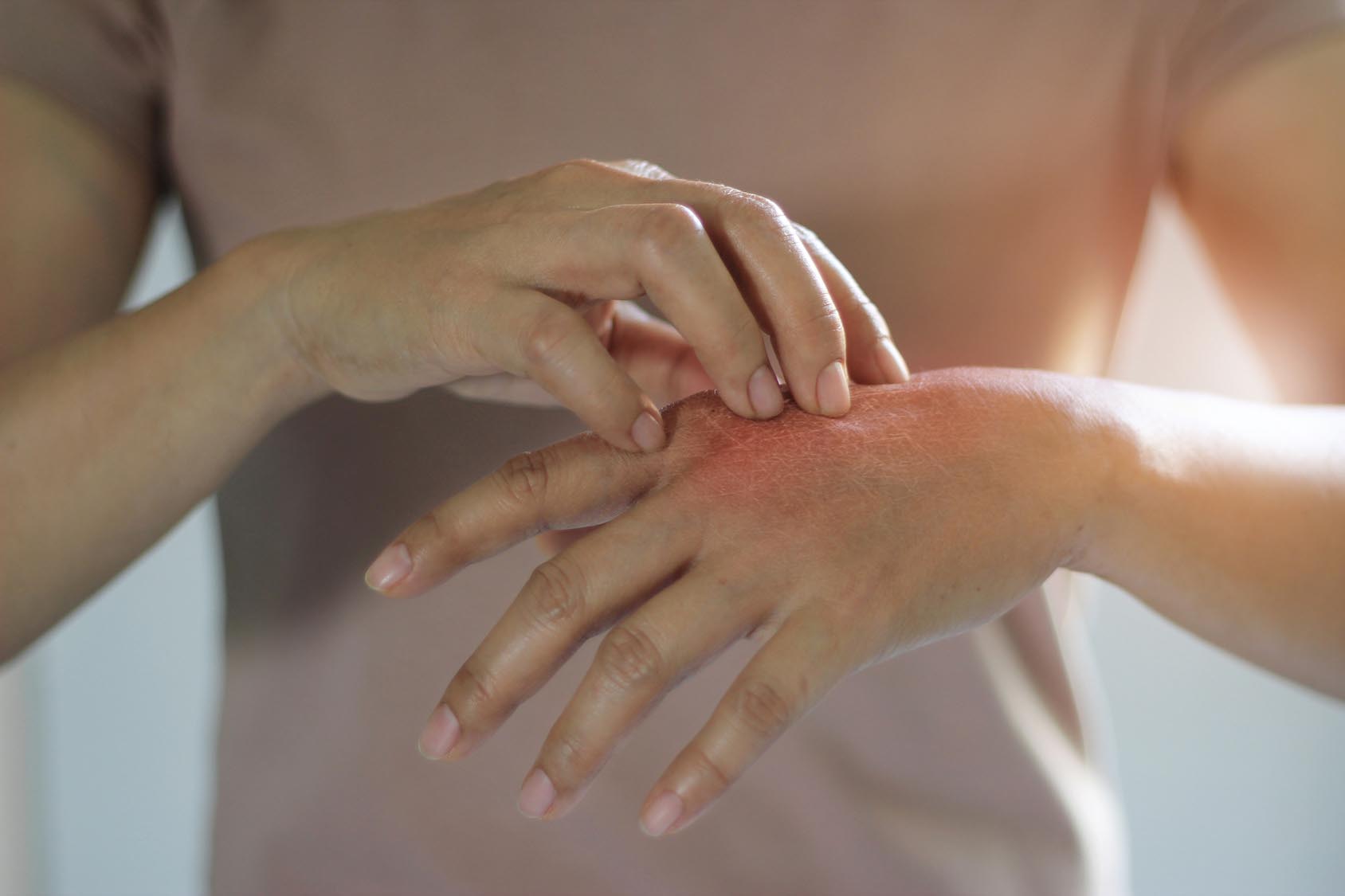• Vitamin-powered molecule
• The importance of diet
-
What is already known on this topic
People with a low dietary vitamin A intake are highly susceptible to skin infections, but little is known about how this vitamin affects skin immunity. -
What this research adds
Researchers have identified a previously unknown skin protein that kills bacteria by breaking up their cell membrane. The protein requires vitamin A to work. -
Conclusions
The study provides an insight into how diet impacts the ability of the skin to protect itself from bacterial infection.
A newly identified skin protein that protects skin from bacterial infection needs vitamin A to work, researchers have found. The results, published in Cell Host & Microbe, may explain why people with a low dietary vitamin A intake are highly susceptible to skin infection.
Vitamin A is known to regulate skin immunity, but the exact mechanisms are still elusive. So Tamia Harris at the University of Texas Southwestern Medical Center in Dallas and her colleagues set out to identify genes that are turned on when mice are exposed to bacteria.
The team identified a gene whose product is called resistin-like molecule α (RELMα). This protein is known to be produced by some types of immune cells, fat tissue, and lung cells, but it had not been described in skin epithelium.
Vitamin-powered molecule
Like other skin antimicrobial molecules, RELMα is able to kill bacteria including Streptococcus pyogenes, Pseudomonas aeruginosa, Escherichia coli and Propionibacterium acnes.
The bacteria-killing effects of RELMα are due to the protein’s ability to make holes into the bacterial cell membrane, the researchers found. However, RELMα is expressed only in the presence of vitamin A or its derivatives, like retinol.
The importance of diet
In addition to showing RELMα’s dependence on vitamin A, the team found that mice that lack this protein have different bacterial species on their skin compared to mice that express it. In particular, mice that lack RELMα have higher amounts of staphylococci and streptococcus bacteria and are more susceptible to skin infection caused by microbes such as S. pyogenes.
What’s more, mice fed a diet lacking vitamin A made no RELMα, but they did start to produce the protein in their skin when treated with a vitamin A derivative that is used for severe acne.
Although more research is needed to determine how these findings will impact people with inflammatory skin conditions such as acne and psoriasis, the study provides an insight into how diet impacts the ability of the skin to protect itself from bacterial infections. It also helps to define the molecules that create a healthy relationship between the skin and its microbiota, the scientists say.









